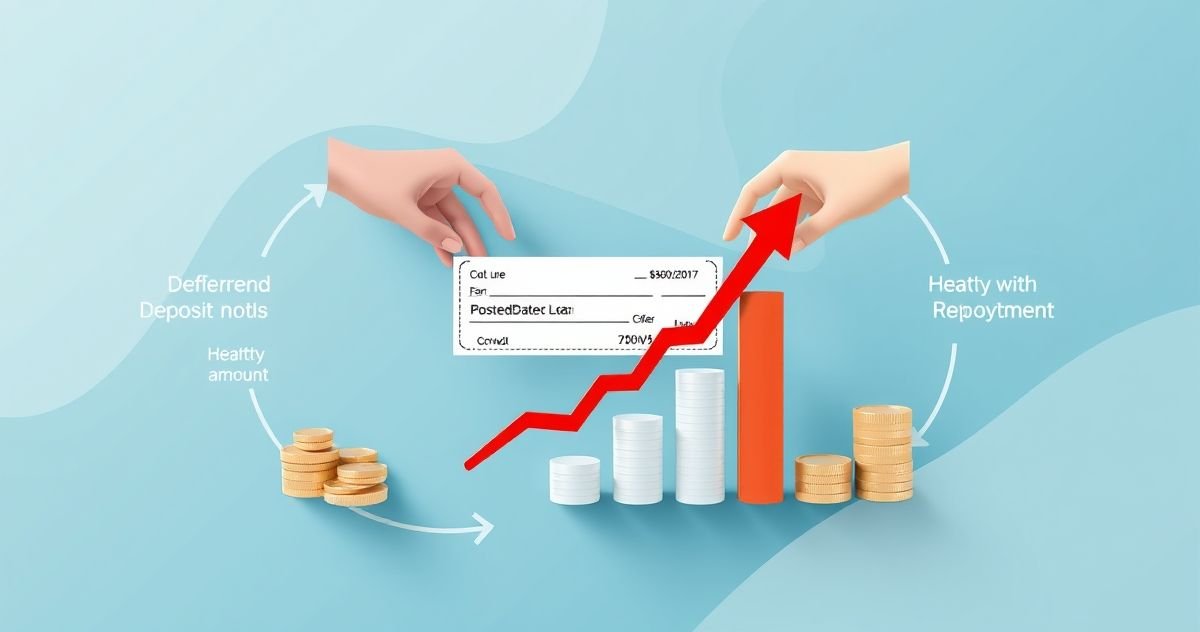A deferred deposit loan, more commonly known as a payday loan, is a short-term loan designed to be repaid on your next payday. These loans are often for smaller amounts and can come with very high interest rates and fees, making them a potential debt trap for borrowers who cannot repay them on time.
How Deferred Deposit Loans Work
The process for obtaining a deferred deposit loan is typically straightforward:
- Application: Borrowers provide proof of income and a bank account to a payday lender.
- Loan Agreement: A loan amount is agreed upon, along with a fee, which functions as the interest.
- Post-Dated Check or Authorization: The borrower writes a post-dated check for the loan amount plus the fee, or authorizes an electronic withdrawal for their payday.
- Receiving Funds: The lender provides the loan amount in cash or via direct deposit.
- Repayment: On the borrower’s payday, the lender cashes the check or makes the electronic withdrawal for the full repayment amount.
While convenient for immediate cash needs, the cost of these loans can escalate rapidly, especially if the borrower cannot repay the full amount on the due date.
The High Cost and Risks
The primary concern with deferred deposit loans is their exorbitant cost. Fees are often presented as flat amounts, but when calculated as an Annual Percentage Rate (APR), they can range from 300% to over 700%, significantly higher than traditional loans or credit cards. This high cost can lead to a cycle of debt if borrowers repeatedly extend or “roll over” the loan, incurring additional fees with each extension.
Who Uses Deferred Deposit Loans?
Individuals often turn to deferred deposit loans due to:
- Unexpected expenses (e.g., medical bills, car repairs).
- Shortfalls between paychecks.
- Difficulty obtaining traditional credit due to poor credit history or lack of credit history.
- Absence of an emergency fund.
While these loans are intended for short-term needs, they can become a long-term financial burden if not managed carefully.
Safer Alternatives to Consider
Before opting for a deferred deposit loan, explore these alternatives:
- Build an Emergency Fund: Saving even a small amount consistently can prevent the need for high-cost loans.
- Borrow from Friends or Family: A no-interest option if feasible.
- Employer Payroll Advances: Some employers offer advances on earned wages.
- Credit Unions and Banks: Many offer small personal loans or lines of credit with lower interest rates.
- Community Assistance Programs: Local charities or government programs may offer aid for specific needs.
- Negotiate Payment Plans: Contact creditors to arrange more manageable payment schedules.
If a deferred deposit loan is unavoidable, it is crucial to understand all terms and conditions, including fees and repayment dates, and to avoid rolling over the loan to prevent escalating debt.
Sources:
- Consumer Financial Protection Bureau – Payday Loans: https://www.consumerfinance.gov/consumer-tools/payday-loans/
- National Consumer Law Center – Payday Loans: Debt Trap: https://www.nclc.org/issues/payday-loans-debt-trap.html



